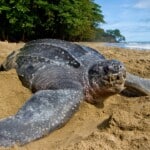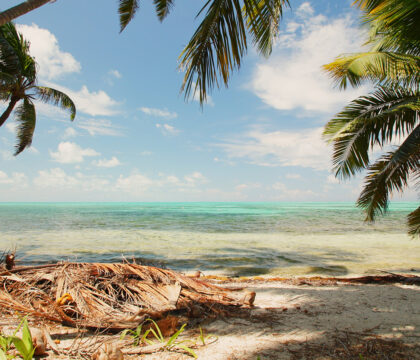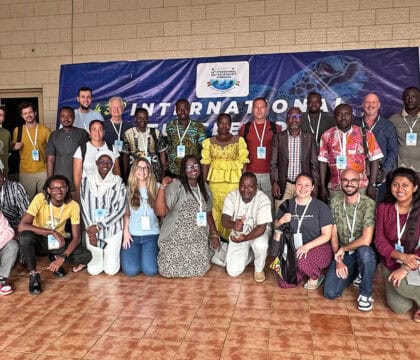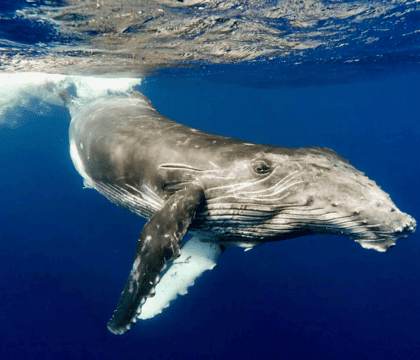June 14, 2017 • News Announcements, Program Updates
One of the most exciting parts of my job is connecting with other teachers, and, through them, being able to reach diverse audiences. When Oceanic Society started our Adopt an Albatross program, we hoped that by sharing the story of the albatross populations of Midway and Kure Atolls and by sending out plastic from the actual nesting sites (plastic that had been ingested by albatross and fed to their chicks), that we might be able to inspire people to commit to behavior changes that would reduce their use of single-use plastics.
We also hoped that our efforts would inspire others to reach out to their audiences and spread the message. This past year, Karen Povey, a conservation educator from the Point Defiance Zoo & Aquarium in Tacoma, WA reached out to us to ask if we could provide photos and plastic from Midway Atoll that she could use to educate visitors to their Washed Ashore exhibit.
Karen was kind enough to share her story with us:
I opened the box and gasped. In my hands was a colorful mix of wave-tossed trash—a toothbrush, a rusty cigarette lighter, a bottle once dispensing eye drops, perhaps. Though pitted and faded by untold time spent in the sea, the contents were surprisingly intact and recognizable. And startling in their size. Expecting small shards, I was holding hefty, five-inch pieces of plastic. And my heart sank.
Ocean plastic awareness is a priority issue at Point Defiance Zoo & Aquarium where we are committed to being a force for facilitating change within our community. In our efforts to reduce the use of single-use plastics we have embarked on an array of programming. We’re hosting the Washed Ashore exhibit, a spell-binding display of sculptures crafted entirely from trash recovered from the beaches of Oregon. We’ve presented a screening of A Plastic Ocean and plan an outreach effort to local businesses to examine their use of plastics.
But our most impactful programming happens through one-on-one encounters with our guests as we facilitate their connections with the zoo’s amazing marine animals. As a conservation educator, I’ve long known – and told – the story of ocean plastics and their impacts on ocean animals, especially seabirds such as the albatrosses of Midway Island. But I’ve struggled with finding the right approach to make that story resonate with audiences here in Tacoma, Washington, thousands of miles from that remote place and the millions of elegant birds that most people have never heard of.
But as I held the box full of plastic from the stomach of a dead albatross chick and my eyes filled with tears, I knew I had found a way to make that story real. Instead of statistics, we now had a personal story to tell. At our seabird presentation we now share the story of Wisdom, an albatross whose world has changed dramatically at the hands of humans over her sixty-five years of life. We show her picture and that of her chick, and let guests hold and examine the jar containing the choking plastic trash. And we ask them to commit to making a change.
We can all relate to the story of an albatross parent, struggling to raise her chick when confronted with an ocean full of our garbage. Thank you for helping us tell this story in a way that reaches hearts to inspire action.
Karen Povey
Conservation Engagement Manager, Point Defiance Zoo & Aquarium
You should also know that Karen Povey is the adoptive parent to Laysan Albatross, Soren Skymaster, who will soon be fledging from Midway Atoll.




